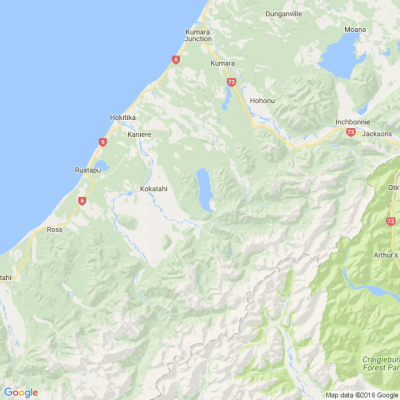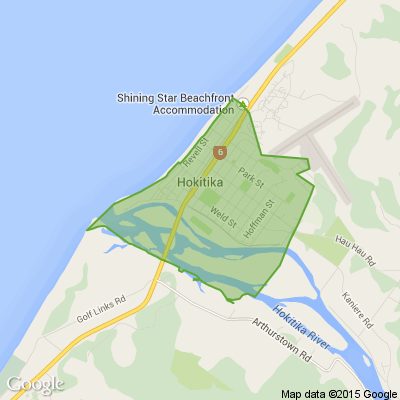No say for public in Greymouth gravel consents
From local democracy reporter Brendon McMahon:
Westroads has begun the process of renewing consents for its longstanding gravel extraction along Blaketown beach at Greymouth.
A newcomer to Blaketown who recently approached Local Democracy Reporting was shocked at the operation and claimed the rate of extraction had accelerated in recent times and was going deeper than permitted.
"They're taking vast amounts — they're wrecking the beach basically. I think they've been doing this for years probably, but lately they've really accelerated it," they claimed.
However, the West Coast Regional Council has checked the consented extraction in the past week and found nothing substantially wrong.
Acting consents and compliance manager Rachel Clark said they had undertaken an inspection and on the day everything was above board.
However, compliance staff had reminded Westroads of their responsibilities to keep their gravel take above the waterline.
Photographs prior to the inspection showing machinery working in the tide "did raise a few concerns" as a 5m no-take buffer was supposed to be maintained to the water's edge.
Gravel being piled on the beach head was also meant to be temporary.
"They are also not supposed to be stockpiling in the CMA (coastal marine area) unless the stockpile is levelled out and respread at the end of the day's activities."
Clark said the current resource consent allows Westroads to take from the beach from the area adjacent to the Westroads yard in Flower St, to a point just short of the Blaketown tiphead.
A consent renewal process was now under way and awaiting affected party approval, she said.
It was not being publicly notified.
"They are allowed to continue to operate under their current consent until the new one is either granted or declined."
Westroads is ultimately owned by the Westland District Council. It has consents for similar activity from South Beach to behind the Paroa School.
A supporting technical report for Westroads by shoreline consultant Dr Martin Single, supplied to the regional council, presents a description of the physical coastal environment of Blaketown and Paroa-South Beach.
Historical changes are analysed, updating previous analysis and reporting from 2007 and 2012.
The executive summary of the 68-page technical report describes long term stability of the backshore from Blaketown south and an increase in beach volume along the beach length.
Previous study of erosion phases superimposed on the long-term trend of gravel accretion showed the latter "masks the effects of the gravel extraction," Short said.
"The survey data shows no systemic retreat of the shoreline or loss of beach volume over the longer time period of data from 2005 to May 2022.
"There are also no persistent localised erosion 'hot spots' along the shore related directly to areas of sediment extraction."
Historical beach sediment extraction regarding shoreline erosion, beach volume loss or inundation by wave overtopping the backshore or beach crest did not appear to be significant.
"There also do not appear to be adverse short-term effects of the extraction activity. The data analysis indicates that the historical consented extraction volumes are sustainable and would not result in an adverse effect.
"This is also projected to be the case over the proposed 10-year consenting period with projected sea level rise."
* Public interest journalism funded through NZ On Air.
Show us your projects
Whether it's craft, haberdashery, woodwork or upcycling, we'd love to see what you've been working on lately.
You may even spark someone else's creativity...
Tell us about your current project or show us a picture in the comments below...

The perfect Mother's Day gift is here!🌸
Looking for a thoughtful gift for Mum? Give her something she'll enjoy all year round with a magazine subscription!
Whether she’s passionate about gardening, inspired by beautiful homes, or loves to keep up with the latest entertainment, you’ll find the perfect match at
Mags4Gifts.co.nz.
This Mother's Day, save up to 35% on subscriptions – perfect for Mum, Grandma, a special mother figure, or even as a treat for yourself!
Don't miss out – shop now and make her day unforgettable!
From the team at Mags4Gifts

🎭 Tricky, Twisty, and Totally Fun—Let’s Riddle! 🤹♂️
I bring people together, though I’m not alive;
I’m small but vital, helping communities thrive;
I’m often green, sometimes blue or red—
without me, connections might be dead—
What am I?
Do you think you know the answer? Simply 'Like' this post if you know the answer and the big reveal will be posted in the comments at 2pm on the day!
Want to stop seeing these in your newsfeed?
Head here and hover on the Following button on the top right of the page (and it will show Unfollow) and then click it. If it is giving you the option to Follow, then you've successfully unfollowed the Riddles page.








 Loading…
Loading…










